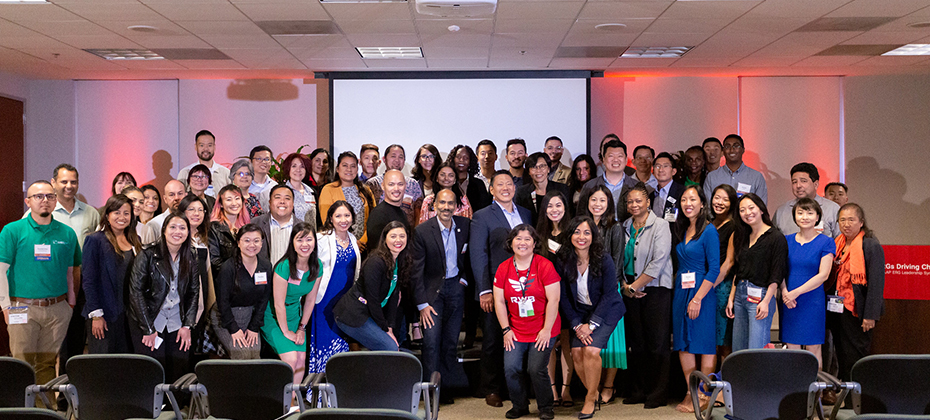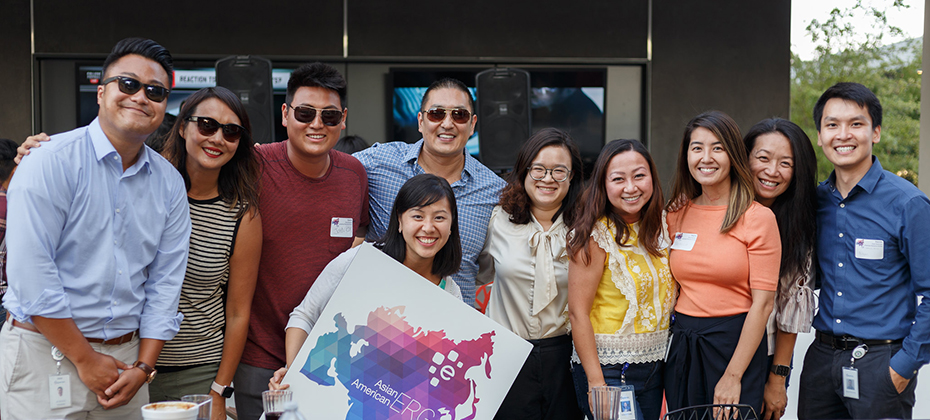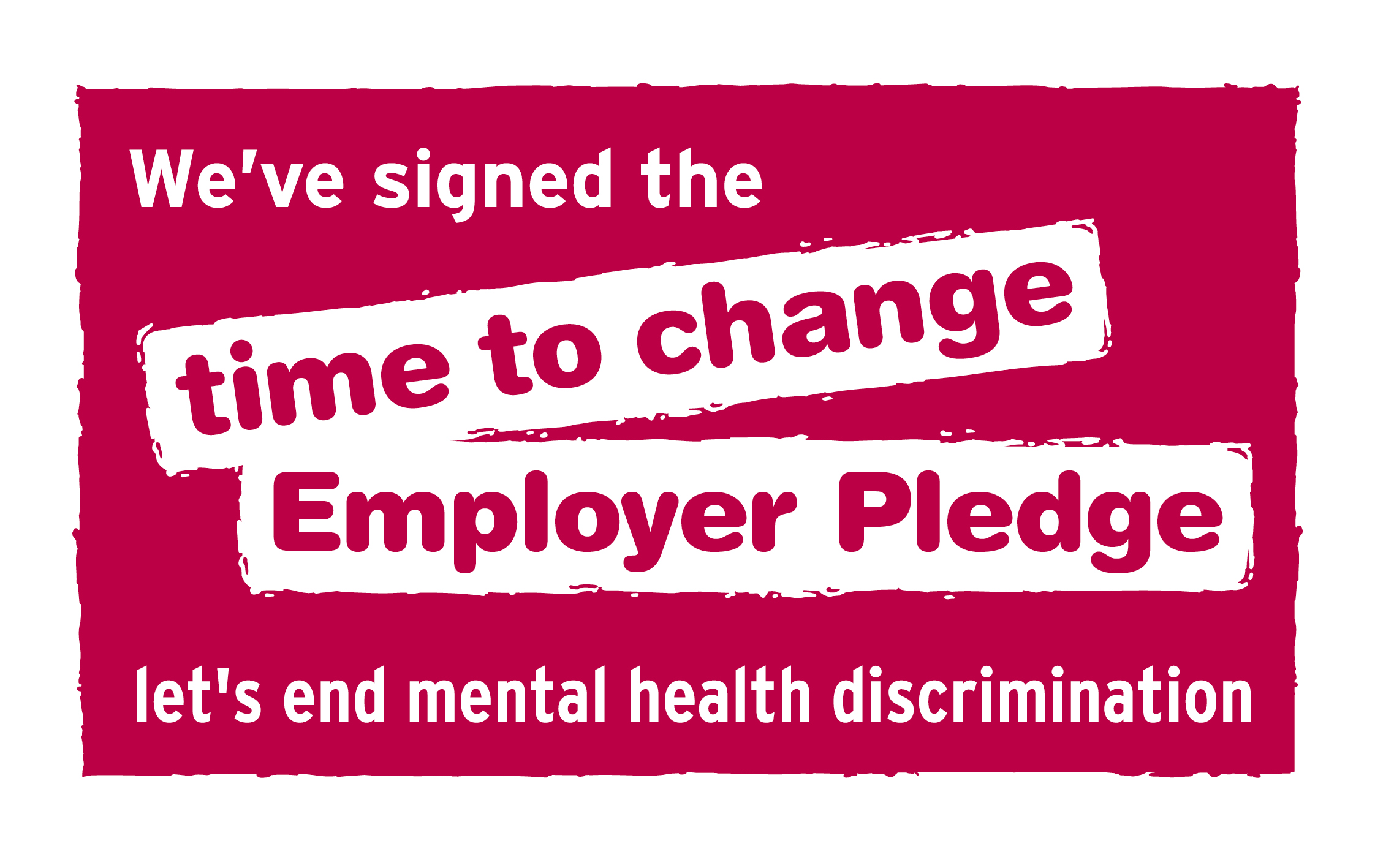Social Responsibility
Experian is deeply committed to making an important difference in each of the communities we operate and live all over the world. Through our relationships with nonprofit organizations, our dedication to consumer education and our encouragement of employee volunteerism, we are able to champion a number of important causes. Read about our latest corporate social responsibility news below:

For the second year in a row, Experian Costa Rica has achieved recertification from Great Places to Work in the Central America region. The honor recognizes the inclusive workplace culture that Experian Costa Rica employees and leaders have created, making it a dynamic environment for innovation and high productivity. “Getting re-certified as a Great Place to Work provides and enormous sense of pride. As an organization it validates all the efforts we make to ensure a strong healthy employee culture and as a leader it allows us to come to work knowing that we have a culture that employees enjoy working in,” said Adrian Sibaja, Director of Service Delivery for Experian Costa Rica and Chile. Experian Costa Rica is one of four Global Delivery Centers, strategically located centers of operational excellence that support Experian’s regions. The office is home to nearly 1,000 employees across different business units. This honor reinforces the workplace culture we’re fostering, which our employees are happy to brag about in confidential surveys. Costa Rica leadership is always looking for ways to make the employee culture even better. That’s why recognizing employee accomplishments and encouraging partnership between business units are among their top priorities. Congratulations to our Costa Rica colleagues!

In the United States, June is observed as Pride Month by the Lesbian, Gay, Bisexual, Transgender and Queer (LGTBQ+) community. The celebration is in remembrance of the 1969 Stonewall Uprising in Manhattan, a tipping point for the Gay Liberation Movement in the U.S. Pride is not only about the parades and flags, but about the celebration and commemoration of the contributions members of the LGBTQ+ community have made throughout U.S. history—and there are many. Though the beginnings of Pride Month originate in the U.S., Experian is committed to supporting and uplifting the LGBTQ+ community on a global scale. This year was an especially important year, marking both the 50th anniversary of the Stonewall Uprising and the one year anniversary of the inception of Experian’s Pride Network Employee Resource Group (ERG). Our Pride Network executive co-sponsors, Michele Bodda and Todd Rudie, say, "As our culture continues to evolve, we feel especially empowered by Experian’s demonstrated commitment to diversity and inclusion. With great support from our leadership, we launched the Experian Pride Network just one year ago and have achieved success beyond our aspirations." Earlier this year, for example, Experian earned a "2019 Best Place to Work for LGBTQ Equality" designation by the Human Rights Campaign (HRC). "We are proud to have achieved a perfect score on our very first submission to HRC’s Corporate Equality Index. This was a goal our ERG originally set out to achieve within three years," Bodda and Rudie stated. With so much to commemorate and celebrate, our Pride Network kicked off the month with numerous events around the world, including participation in official Pride parades, on-campus barbecues, bake-offs, spirit days, LGBTQ-focused webinars and so much more. It's important for us to not only provide a safe space for members of the LGBTQ+ community, but to also educate all of our non-LGBTQ employees about how they can be better allies. As part of the festivities, we had The LGBT Center OC conduct a webinar for ways we can develop tools and strategies for good allyship across the LGBTQ+ community and beyond. Here are some takeaways of what it means to be an LGBTQ+ ally: Allies have a deep understanding of LGBTQ+ people, terms, and experiences Allies speak up when they see discriminatory behavior Allies intervene in cases of bullying or harassment Allies always use the right name and pronouns for their transgender friends Allies recognize that they have privilege over other marginalized groups, and they want to use that privilege to help elevate the voices of the unheard Experian also hosted a webinar on navigating the workplace as a transgender individual. While several states have laws in place to protect transgender and gender non-conforming individuals in the workplace, harassment and discrimination are still large issues in the U.S. today. Here are some takeaways of what we can do to better support our transgender and gender non-conforming colleagues and friends: Understand the biases and hardships trans and gender non-conforming individuals face in the workplace — 75 percent of transgender workers experience discrimination, harassment, bullying, privacy invasion and suppression every day at work Know the laws in your state Empathize. You can do this by calling people by the preferred name/pronoun, refraining from making assumptions about others' sexual orientations and avoiding making assumptions that all trans people look the same or are going through a "transition" Be an ally — add gender neutral/all-gender restroom options, normalize the usage of pronouns, don't ask personal or inappropriate questions, etc. After taking measures to further educate ourselves, it was time to celebrate! Here are some photos from our Pride celebrations: Costa Mesa, CA Allen, TX Schaumburg, IL Clearwater, FL Costa Rica

At Experian, we believe that the power of data can be used in everyday life to help consumers worldwide. And we deliver against that mission every day. As the amount of data in the world continues to grow exponentially, the opportunity to harness the power of that information to improve the lives of people around the world grows with it. Experian is uniquely placed to fulfill that mission - we are empowering both individuals and businesses around the globe by putting them in control of their data, and their futures. Our latest Corporate Responsibility Report highlights the very real, tangible impact our company has achieved, enabling more than 20 million people to access credit and other essential services. Through our core products and services – and the introduction of new alternative data sources such as utility and rental data – Experian is adding value to societies around the world, increasing choice, transparency, and competitiveness in economies, and improving financial inclusion, helping those access mainstream financial products, who have previously been unable to. In South Africa, we launched The GeleZAR app. Developed through our social innovation programme, the app uses mobile data to enable unbanked people to improve their credit profile, helping them to access they credit they need to build their businesses and achieve their goals. In Brazil, we’re reaching those living in some of the remote parts of the vast country who don’t have access to our online services. Our Serasa Itinerant truck and boat reached more than 100,000 in 44 countries in its first year, helping consumers to view their credit scores for the very first time and learn how to manage their file, build their history and manage their debts successfully. In the USA, we introduced what we believe is a significant game changer to the way millions manage their finances. Experian Boost allows people, for the very first time, to add positive payment history directly to their file to improve their score. Since launch in March, more than 600,000 customers have boosted their score, taking control of their data in a way that has never been done before. We’re at the forefront of the battle against identity fraud. Our fraud prevention and data capabilities help both clients and consumers keep their data safe. A new service in the USA helps parents protect their children from identity theft and we’re helping older people in the UK to recognise and tackle fraud. Our roots are in providing credit information and assessing lending risks. But we are much more than that. We are creating new opportunities by connecting businesses and consumers in new ways – and exploring how data can be used to tackle societal challenges around the globe. In doing so Experian is supporting businesses grow, people prosper and communities thrive, and helping shape a better tomorrow.

As part of Experian’s commitment to the value of Employee Resource Groups (ERG), we recently hosted the National Association of Asian American Professionals (NAAAP) ERG Leadership Symposium, ERGs Driving Change at our Costa Mesa headquarters. ERGs are a proven strategy for organizations to advance a diverse and inclusive company culture. At Experian, we believe the culture of inclusion also cultivates and advances innovation with the added diversity perspective that strengthens the community of professionals and ideas within the company. We were proud to host the 13th ERG one-day training program that was organized by the NAAAP to help companies and employees advance their ERG experience and learn how ERGs are change agents to enhance productivity and grow professional networks in the corporate setting. Speakers represented companies leading their industry, such as Bank of the West, Macy’s, Anheuser-Busch, Google, Facebook, UPS, Northrop Grumman, Boston Scientific, and many more, including Experian. The symposium this year featured numerous ERG thought leaders sharing their insights across a variety of sessions and panels, including; Best Practices in Demonstrating Value, Creating Connections through ERG Leadership, What’s Next Action Plans for Your ERG, among others. Caption: Hiq Lee, President, Business Information Services for Experian, shared insights as a panelist for The Crucial Executive Role in Driving Change session. She was joined by Judy Ting, SVP, Pacific Rim Region Manager, Bank of the West, and DeAnne Aussem, Managing Director & Founder of U.S. Leadership Coaching Center of Excellence, PricewaterhouseCoopers, LLC. The panel was moderated by Farzana Nayani, NAAAP ERG Architect. All speakers provided valuable takeaways for the professionals in attendance to motivate their organizations to positively impact their company with the diversity amongst its workforce and implement strategies to leverage the power of inclusion. Specifically, the hundred-plus attendees learned more about how Employee Resource Groups and Business Resource Groups are change agents for diversity, inclusion, engagement, productivity, and connection-building within organizational settings. Justin Hastings, former Chief Human Resources Officer for Experian North America, welcomed the ERG Leadership Symposium attendees with his introductory remarks, as he shared Experian’s perspective on inclusion leading to innovation. Therefore, we asked him some questions to share his insights with us on Experian’s ERGs. 1. How is Experian creating a better tomorrow? Hastings: The consumer is at the heart of everything we do. Our product innovation is geared towards giving consumers more control over how their data can enrich their lives. Experian Boost is a perfect example of this coming to life. Inclusion underpins our ability to innovate. The more we encourage a culture where everyone’s creativity is valued, the more we are able to innovate for consumers. Our ERGs play an important role in promoting diversity, and creating an environment where all our Experian people can bring their whole selves to work and be creative. 2. What role does The Power of YOU have in Employee Resource Groups? Hastings: We created a workplace environment where everyone is comfortable bringing their whole self to work, regardless of differences or backgrounds. We call this The Power of YOU, which creates an environment for employees to be their true selves. We advance our company culture by not only respecting the differences amongst Experian colleagues, but actively celebrating them with and through our ERGs. 3. What impact does the Employee Resource Groups have on Experian? Hastings: At Experian, inclusion is vital to the success of the company. Our ERGs provide us with a platform to be a more innovative business. Our ERGs now have around 1,000 employees actively involved across the eight current groups. They have helped create greater understanding of different cultures that are represented in our company, and they have also underpinned our recruiting efforts across diverse talent pools. This has helped us to keep evolving our employee base to be increasingly representative of the communities in which we operate, and the consumers we ultimately serve. Learn more about Experian’s Employee Resource Groups by visiting: https://www.experian.com/corporate/power-of-you.html Learn more about the National Association of Asian American Professionals (NAAAP) by visiting: https://www.naaap.org/ All photos taken by Nhan T. Nguyen.

As part of the company’s commitment to diversity and inclusion, Experian is celebrating Asian Pacific American Heritage Month through May. This article is by Dacy Yee, VP of Marketing and Customer Relationship Management for Experian Consumer Services and executive co-sponsor for Experian’s Asian American Employee Resource Group (ERG). My parents’ story is not unlike any other immigrant story. At 20 years old, they came to the United States from Hong Kong with nothing but a dream for more opportunity and a better life for their family. Their drive and resilience empowered me from a young age. I got my hustle from my dad; he is the hardest-working person I know. Throughout my childhood, he juggled multiple jobs, from working in Chinese restaurants and bagging groceries to becoming a mechanic. He worked his way from mechanic to owner of a gas and service station, often spending early mornings and late evenings opening and closing the shop. I got my toughness from my mom; she always pushed me to be better by making me believe that I was capable, strong and resilient, and by telling me that I could achieve anything I wanted to in life. My parents showed me what courage and determination meant by leaving the familiar in their home country to move here and maneuver a new, unfamiliar culture. They empowered me to work hard and take risks—to always think bigger. Asian Americans have a unique place in history; from the Chinese immigrants working on the railroad in the 1880s to the Japanese WWII internment camps of the 1940s, there’s something to be said about the Asian American story in this country that has only recently been explored in pop culture and entertainment. There’s the quiet, hard work ethic and driven mentality from my parents’ generation that worked so well in certain countries, but a steady drumbeat of wanting to stand out in future generations after that. This has profound implications for professional environments. The generalizations of the silent model minority have been disputed in recent years. Even more so, there’s much to be discussed as to how we carry our past generational habits into the future and how that shapes who we become. The lessons my parents taught me sometimes translate differently and result in the culmination of stereotypes I’ve tried to avoid throughout my career. Putting my head down and working hard might suddenly mean I’m passive. Thinking twice about challenging authority might translate to being soft-spoken or submissive. As an Asian American professional woman, I’m faced with minute-to-minute decisions of when to speak up, when to fight my battles and when to simmer down. There have been studies showing that there is a real “bamboo” ceiling for Asian Americans trying to reach the C-suite level. In fact, Asian Americans are currently the racial group least likely to be promoted to management positions in the U.S., according to a study in the Harvard Business Review. The question is: how do we break through that ceiling? As a company rooted and driven by data, we are constantly looking at numbers in everything we do. This is why we’re hosting a speaker to walk through his findings about what builds and creates this “bamboo” ceiling and how it affects Asian Americans in the workplace. We need to speak up and share our struggles with each other; as part of Asian Pacific American Heritage Month, we’re hosting a panel featuring our own Asian American leaders and professionals to talk about this very issue. To each other, to their colleagues, to their managers and to the larger Experian community. Finally, we’re going to chart the path forward and lead by example. As members of the Asian American ERG at Experian, we’re going to host more skill-building workshops, have open and candid conversations, and keep each other accountable to our stretch goals and ultimately our professional aspirations. As we celebrate Asian Pacific American Heritage Month, there will be an ongoing dialogue of what empowerment means to us in the workplace. Ultimately, regardless of where you come from and how you identify yourself, the resounding lesson is of empowerment; standing up for what you’re passionate about and leading the way for others who will be following in your path.

It’s an exciting time for all of us at Experian. When I became CEO, just over four years ago, we set a clear path to put an even greater focus on our relationship with consumers and how we can help them in their financial journey. Today, as we prepare to launch Experian Boost, we are marking a major milestone in that commitment. There are more than 100 million Americans who don't have fair access to credit today. These consumers are often overlooked by lenders and forced to rely on high interest credit cards and loans. Too often they find themselves stuck in a never-ending cycle in which the best of intentions and the desire for a better financial future clash with reality. At Experian, we know that a credit score is the gatekeeper to better financial opportunities. It can make or break people’s access to the very things that help them thrive in today’s economy like getting a loan for a family car or access to a credit card with a lower interest rate. Unfortunately, many consumers have credit files that are considered too “thin”. And while they may be paying their utility, mobile phone and cable TV bills on time month after month, this responsible behavior hasn’t been acknowledged or rewarded with a higher credit score. Experian Boost changes this scenario and give consumers the credit they deserve. As a business, we want to ensure that as many people as possible can access and participate in the financial system and we believe everyone deserves a fair shot at achieving their financial dreams. Today’s Experian Boost announcement drives our mission forward by giving consumers more control over their credit score. This industry-first online platform will give consumers an opportunity to instantly improve their credit scores by adding positive telecom and utility payment information directly into their credit profile. Experian Boost is free and will be accessible to every credit-active adult in America. We recently briefed Experian’s Consumer Council, a group of 12 leaders from organizations committed to helping consumers on their financial journey, on Experian Boost with great feedback. Here’s what one of the organizations, the Credit Builders Alliance, had to say: “Limited credit activity and history are key barriers for consumers to achieve their financial goals,” said Dara Duguay, executive director, Credit Builders Alliance. “We fully support initiatives that promote financial inclusion and think Experian Boost could play an important role in overcoming that barrier. We look forward to seeing how Experian’s new platform impacts consumers.” Innovations like this and the modernization of an industry don’t happen easily. I couldn't be prouder of our employees who have been working for past three years to make this platform a reality. We are pioneering a bright future for the world of credit with Experian Boost, a product which is emblematic of the innovation culture we foster at Experian. Experian has a fundamental purpose that is shared by colleagues around the world: to strive to be a champion for the consumer. With Experian Boost, we're bringing our purpose to life and we can’t wait to share it with you. To find out more about Experian Boost, please visit: experian.com/boost.

The following is written by Jan Barratt, Experian. We owe everything to the millions who lost their lives in the Great War, fighting for our freedom. Without their sacrifice, the world we know would be a very different place. This November marks a whole century since the guns finally fell silent on WW1. It’s only fitting we use this landmark anniversary to remember and celebrate everything they did for us. The Games of Remembrance 2018 is an opportunity to do exactly that. Inspired by a generation’s love of football and its ability to unify, The Games of Remembrance harnesses the power of the beautiful game to remind us all of the immense bravery and sacrifice of millions. We’re proud to sponsor the Games and to play a small part in helping those memories live on and to commemorate the people who lost their lives in the conflict. Furthermore, we’re thrilled that this year’s celebration comes to Nottingham, a place where Sir John Peace, Her Majesty’s Lord-Lieutenant of Nottinghamshire, and the late Eric Barnes built up Experian from its roots almost 50 years ago. Today, we employ more than 2,000 people across the East Midlands region. We’re proud to be sponsoring the Games of Remembrance, and we are proud to be part of the Nottingham community. We remember.

This article is by Michele Bodda, general manager of Experian Mortgage, and co-sponsor of Experian’s PRIDE employee resource group (ERG) Like most of us in the LGBT+ community, my coming out story is more like an unfinished novel than a tightly worded chapter in a book once read and forgotten on a bookshelf. It unfolded over the years. I wasn’t always confident enough to be fully out, but I never pretended to be something I wasn’t. For me, there wasn’t a day of reckoning or a loud declaration. I arrived at this point over the years, and there were two pivotal incidents that served as catalysts for me. First, after working at Experian for several years, a male colleague stunned me when he said his feelings were hurt that I didn’t trust him enough to bring my whole self to work. I was dumbstruck by his frankness and desire to know the real me. And second, I realized I couldn’t ask my children to go through life with two moms confidently and comfortable if I wasn’t truly authentic in every aspect of my life as well. For me, coming out happens again and again. I will always need the quiet confidence to say, “I’m a mom, a daughter, a friend. I’m an executive. And yes, I am gay.” When Experian asked me to lead our company’s LGBT+ ERG, I took a moment of pause. Yes, this was a big decision, but ultimately, drawing on that confidence, it was an easy decision to make. In light of the 30th anniversary of National Coming Out Day on Oct. 11, I want to assure people wondering if acknowledging diversity is significant, it is. The difficulty some of our LGBT+ colleagues face making daily decisions about where they can be fully present aren’t merely insecurities. They are the realities of being LGBT+. No federal law exists protecting the rights of employees from discrimination based on sexual orientation or gender identity in the United States. In 28 U.S. states, employees aren’t afforded state-level protection for sexual orientation, meaning they can be fired for being lesbian, gay or bisexual, and it’s even worse for transgender members of the workforce. The fear is real for many members of the LGBT+ community – but so is the motivation to seek change and create an inclusive workforce in America. Just imagine working in America if everyone felt as safe as I do to bring their whole selves to work? The mental and emotional energy I expended hiding my whole self from my colleagues many years ago saddens me. Could I have bonded with others quicker, positively affecting team performance and achieving goals faster? Could I have helped someone else know it was OK to be fully themselves at Experian and watched them confidently come into work every day? Today, I’m not raising my voice for myself. I’m raising it on behalf of talented LGBT+ employees across the country and to tell business leaders that the economic results they’ll receive by instilling and nurturing inclusion is worth it. According to research presented at Deloitte’s IMPACT 2017 conference, organizations with inclusive cultures are six times more likely to be innovative, six times more likely to anticipate change and respond effectively, and twice as likely to meet or exceed financial targets. It’s the right thing to do. I feel fortunate to have spent the last 20 years at a company that is overt in saying it’s OK to be who you are: You are not only welcomed here, you belong here.

The following is written by Alison Sharp, Experian. Mental illness affects thousands of people in the UK, their friends, families and work colleagues. In fact, one in four of us will be affected by mental health issues at some stage of our lives. It's hard enough to experience mental health problems, without having to face the judgement, shame and isolation that often surrounds it. Today is World Mental Health Day, an opportunity for us, and others, to help raise awareness of mental health issues. However, our work to change the way people think and act about mental health problems doesn’t stop here. I am proud that our MD, Charles Butterworth, signed the Time to Change pledge last month, to help bring an end to mental health discrimination and show our commitment to supporting mental health awareness. Signing the pledge marks the beginning of a shift to make sure well-being and mental health support becomes the norm for us. I believe that the workplace should be an environment where everyone can thrive, no matter who they are. Experian joins the wide movement of more than 800 organisations that have signed the Time to Change pledge, including E.ON, British Gas, Ernst & Young, Transport for London, Royal Mail, Barclays, Shell, Pepsico, the Church of England, Sunday Mirror, Marks and Spencer, WH Smiths and many NHS trusts, universities, and local authorities. At Experian, we are dedicated to making colleagues feel more support and connected to the help we have, as and when they need it. I truly believe that mental health is something that shouldn’t be brushed off or pushed aside and I hope that if you are suffering, or know someone that is, that you have the courage to reach out for support because after all, it is OK to not be OK.